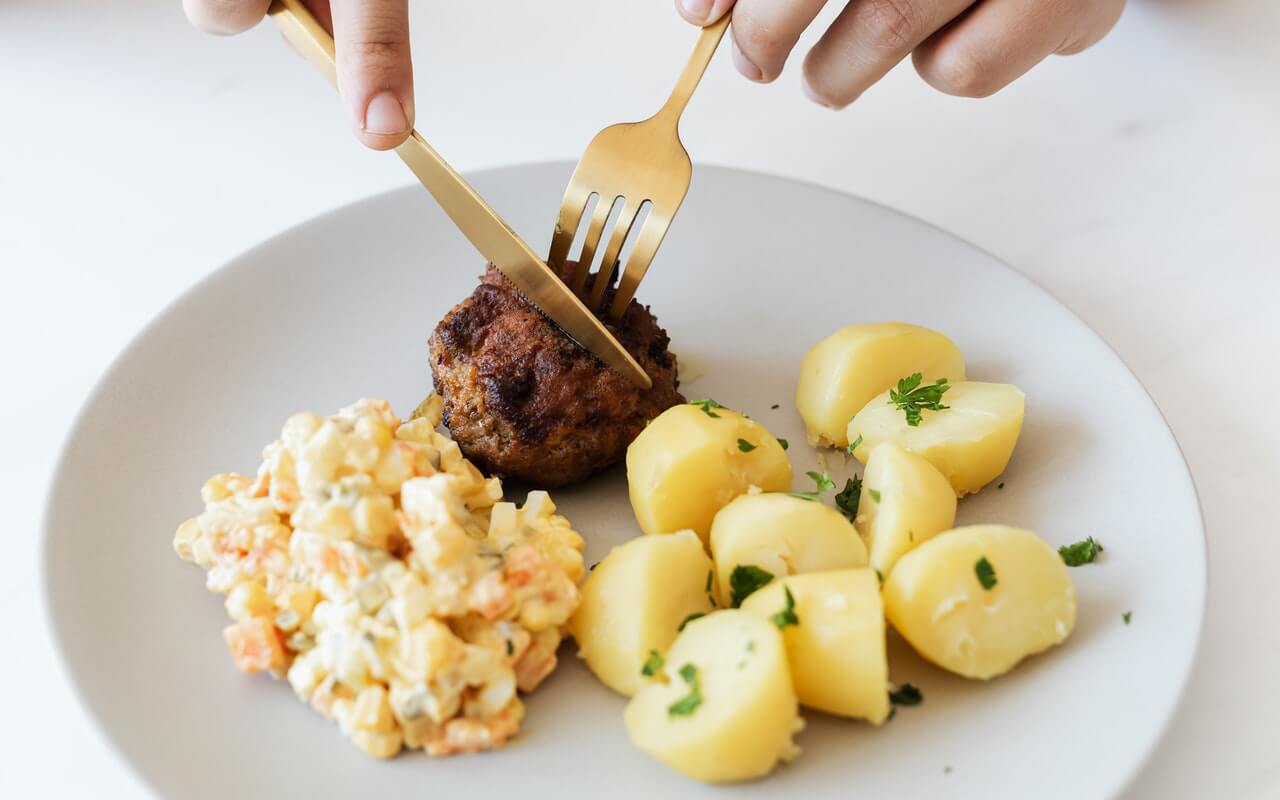The potato is a much-loved accompaniment at all meals – potato bhaji with puri for breakfast, potato chop sandwich for a midmorning snack, mixed veggies with potatoes for lunch, potato kappas with chai for an evening snack, and French fries with a burger for dinner.
It is also a root vegetable that receives much flax from diabetics and those struggling to drop the kilos. So, are potatoes really bad for health? Or have they received unfair judgment based on their nutritional composition?
Potatoes are classified as a “root vegetable”, and have a greater caloric density than the other two groups of vegetables – “leafy vegetables” and “other vegetables”. One serving of (raw) potatoes (equivalent to 100 g) provides 100 kcal and 24 g of carbohydrates.
In addition, potatoes are known for their potassium, magnesium, folate, vitamin B6, and vitamin C value and their dietary fiber content, which is especially concentrated in the jacket (skin) of the potato. Often discarded, this edible (potato) peel contributes largely to the complex carbohydrate requirement in a daily diet.
I strongly suggest keeping the potato peel intact when cooking as this is a truly healthy nutrient contributor to the diet.
Potatoes also contain ‘resistant starch’, a type of fiber that improves digestive health by allowing the growth of beneficial gut bacteria. Resistant starch is also known to help control blood glucose levels.
Often labeled “fattening”, the innocuous potato only adds to the weight of an individual when unhealthy cooking methods are used – deep or shallow frying, mashed potatoes with butter, baked potatoes dunked in salt and oil, potato bhaji consumed in large proportions and with oodles of oil!
The cooking medium (fat/oil/butter/ghee) or the accompaniments add to the “unhealthy” tag attached to the potato, and not the potato per se. In fact, a healthy serving of potato is actually suggested as a mid-day filler when trying to drop the kilos!
On the downside, potatoes belong to the nightshade family of vegetables, which are often linked to inflammation, arthritis being an inflammatory process that could possibly necessitate a controlled amount of potato consumption.
In conclusion, choosing an oil-free or low-fat method of cooking the ubiquitous potato and eating this tuber in controlled amounts, proportionate to the other foods on our plate, will translate to “smarter potato eating”.


























